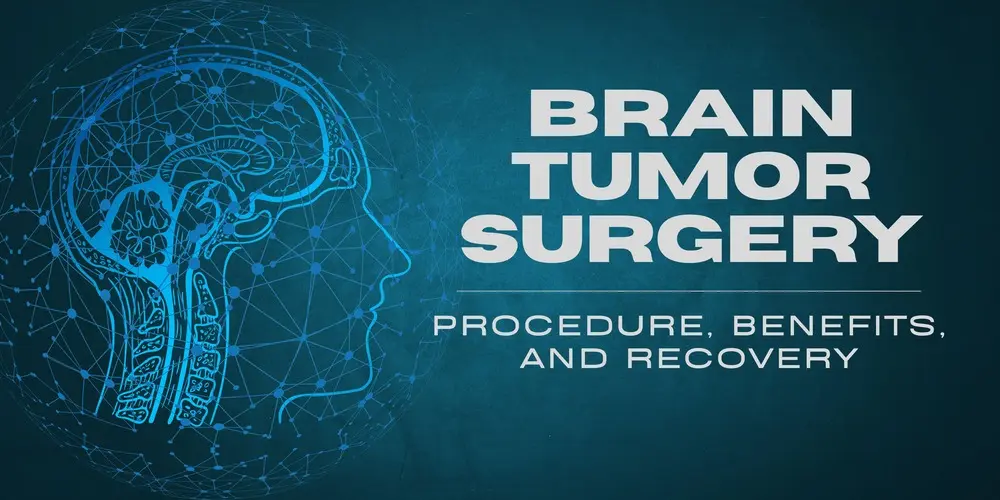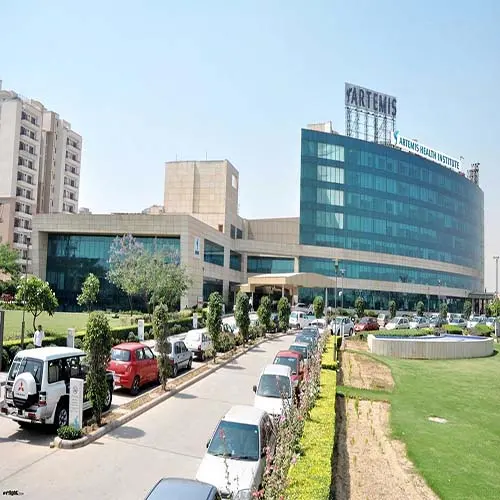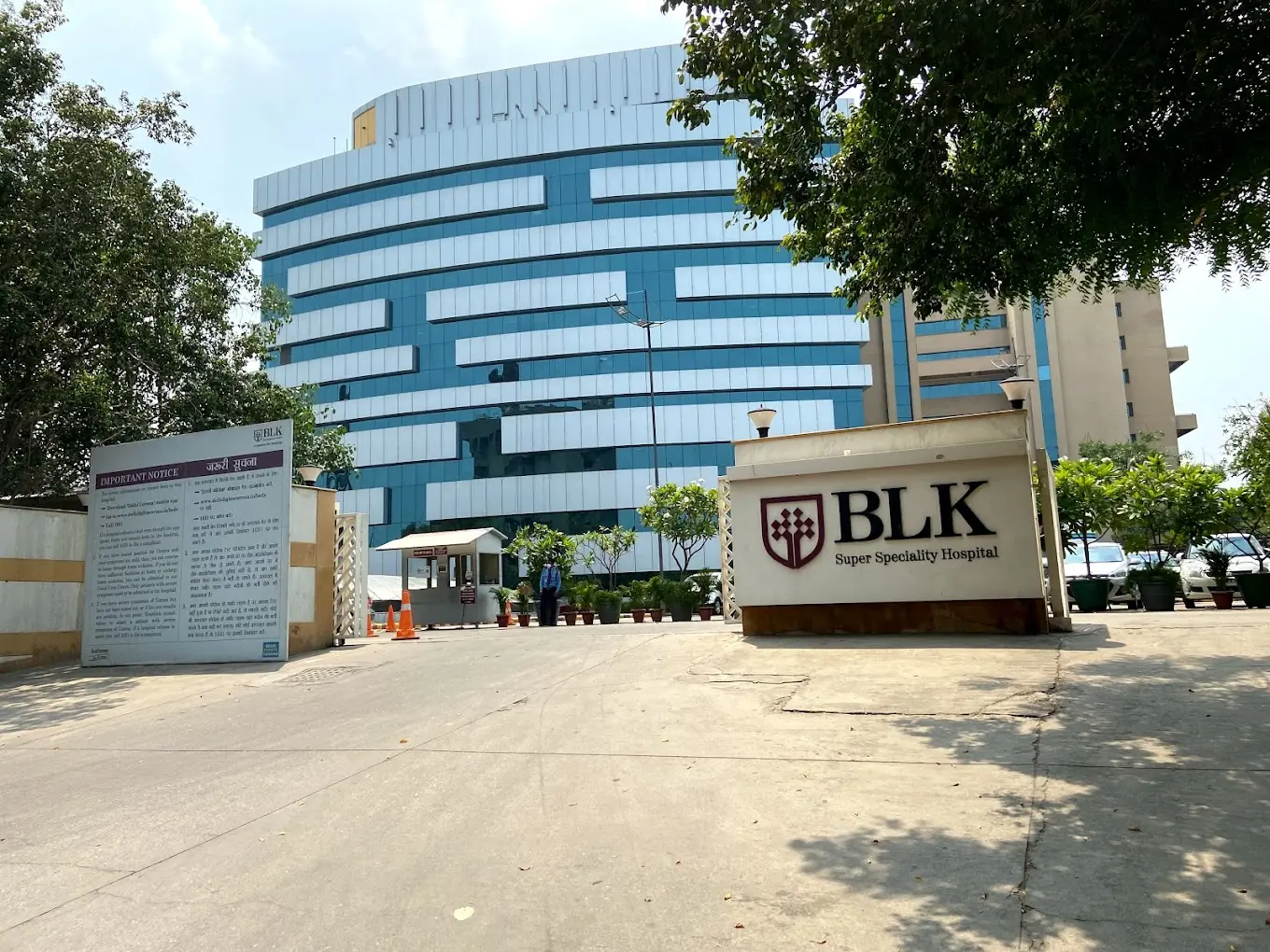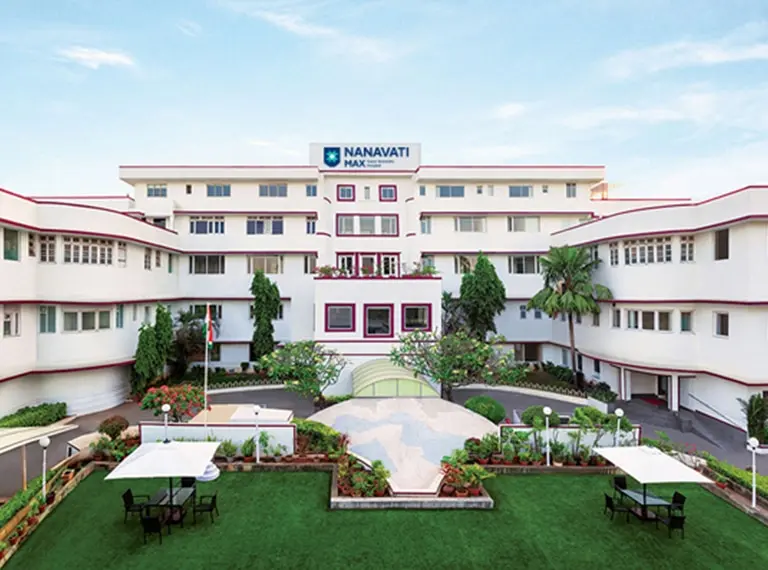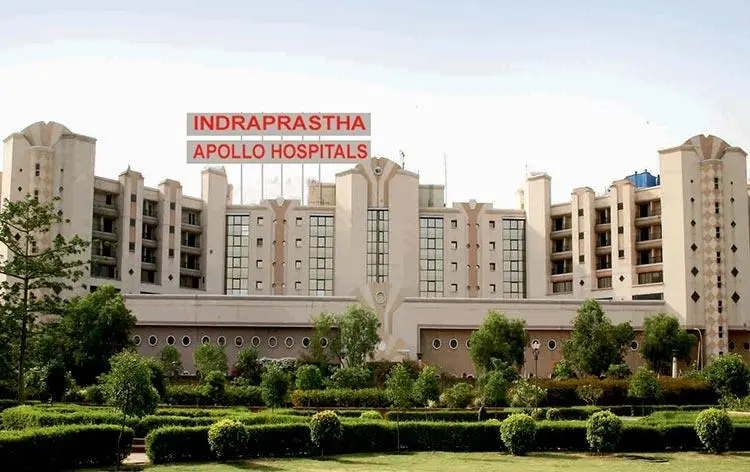Brain tumor surgery is a life-changing medical procedure that plays a crucial role in diagnosing, treating, and managing both benign and malignant brain tumors. For many patients, surgery offers the best chance of survival, symptom relief, and improved quality of life.
With advancements in neurosurgery, imaging technology, and post-operative care, countries like India have become global hubs for brain tumor treatment, attracting thousands of international patients every year. Affordable costs, highly experienced neurosurgeons, and world-class hospital infrastructure make India one of the most preferred destinations for brain tumor surgery.
This comprehensive guide explains:
- Types of brain tumors
- Surgical options
- Cost of brain tumor surgery in India
- Recovery & rehabilitation
- Best hospitals for international patients
- Treatment options for inoperable tumors
Understanding Brain Tumors
A brain tumor is an abnormal growth of cells that develops within the brain or in the tissues surrounding it. These growths can interfere with normal brain function by pressing on important structures that control movement, speech, vision, memory, and other vital activities. The impact of a brain tumor largely depends on its type, size, growth rate, and exact location within the brain.
Brain tumors are broadly classified into two main categories:
Benign Brain Tumors
Benign tumors are non-cancerous and usually grow slowly. They do not spread to other parts of the body, but they can still cause serious symptoms if they press against sensitive areas of the brain. In many cases, benign tumors can be successfully removed through surgery, especially when detected early.
Common examples include:
- Meningiomas
- Pituitary adenomas
- Acoustic neuromas
Although benign, these tumors may still require treatment if they affect vision, balance, hormone levels, or neurological function.
Malignant Brain Tumors
Malignant brain tumors are cancerous and aggressive, meaning they grow quickly and can invade nearby brain tissue. These tumors often require a combination of treatments such as surgery, radiation therapy, and chemotherapy.
Common malignant brain tumors include:
- Gliomas
- Glioblastoma multiforme (GBM)
- Metastatic brain tumors (spread from cancers of the lung, breast, kidney, or colon)
How Brain Tumors Affect the Body
The symptoms of a brain tumor vary depending on where the tumor is located and how fast it grows.
Common symptoms include:
- Persistent headaches
- Seizures
- Vision or hearing problems
- Difficulty with speech or memory
- Weakness or numbness in limbs
- Balance or coordination issues
In some cases, symptoms develop slowly and are mistaken for stress or migraines, which is why early diagnosis through imaging such as MRI or CT scan is crucial.
Get a free cost estimate
Common Types of Brain Tumors
Brain tumors are classified based on the type of cells from which they originate and how aggressively they grow. Understanding the nature of each tumor helps doctors determine the most appropriate treatment plan and helps patients better understand their condition and recovery outlook.
Gliomas
Gliomas are the most common type of malignant brain tumors and arise from glial cells, which support and protect nerve cells in the brain. These tumors can develop in various parts of the brain and range from slow-growing to highly aggressive forms.
Common types include astrocytomas, oligodendrogliomas, and glioblastomas. Gliomas often cause symptoms such as persistent headaches, seizures, memory changes, speech difficulties, or weakness in the limbs. Treatment usually involves surgical removal followed by radiation therapy and, in some cases, chemotherapy. Advances in neurosurgery and imaging now allow for safer removal while preserving vital brain functions.
Meningiomas
Meningiomas develop from the meninges, the protective membranes surrounding the brain and spinal cord. They are usually benign and slow-growing, but their size and location can still lead to serious neurological symptoms. Patients may experience headaches, vision problems, seizures, or changes in behavior as the tumor presses on nearby brain structures.
Some small meningiomas can be monitored over time, while larger or symptomatic tumors often require surgical removal. When complete removal is not possible, radiation therapy may be used to control growth. With timely treatment, outcomes for meningioma patients are generally excellent.
Pituitary Adenomas
Pituitary adenomas are benign tumors that form in the pituitary gland, which plays a key role in regulating hormones in the body. These tumors can either secrete excess hormones or interfere with normal hormone production, leading to conditions such as abnormal growth, thyroid disorders, infertility, or vision problems.
Many patients experience headaches or blurred vision due to pressure on the optic nerves. Treatment typically involves minimally invasive endoscopic surgery performed through the nasal passage, often combined with medication or radiation therapy. Most patients recover well and experience significant symptom improvement after treatment.
Acoustic Neuromas
Acoustic neuromas, also known as vestibular schwannomas, are non-cancerous tumors that develop on the nerve responsible for hearing and balance. These tumors usually grow slowly but can lead to hearing loss, ringing in the ears (tinnitus), dizziness, or balance problems.
Depending on the size and growth rate, treatment options may include regular monitoring, surgical removal, or stereotactic radiosurgery. Early diagnosis allows for better hearing preservation and improved long-term outcomes.
Metastatic Brain Tumors
Metastatic brain tumors occur when cancer spreads to the brain from another part of the body, most commonly the lungs, breasts, kidneys, or colon. These tumors are more common than primary brain tumors and may appear as single or multiple lesions.
Symptoms depend on the number and location of tumors and can include headaches, seizures, confusion, and neurological deficits. Treatment often involves a combination of surgery, radiation therapy, and systemic cancer treatment. In many cases, advanced radiotherapy techniques such as Gamma Knife or CyberKnife are used to control tumor growth and improve quality of life.
Preparing for Brain Tumor Surgery
Proper preparation plays a vital role in ensuring a safe surgical procedure and smooth recovery. From medical evaluations to mental readiness, every step is carefully planned to minimize risks and improve surgical outcomes. Below is a detailed explanation of the key preparation stages before brain tumor surgery.
1. Pre-Surgical Evaluation
Before proceeding with brain tumor surgery, doctors perform a series of diagnostic and health assessments to understand the tumor and evaluate the patient’s overall condition.
MRI or CT Scan
Advanced imaging tests such as MRI or CT scans help determine the exact size, type, and location of the brain tumor. These scans guide the surgeon in planning the safest surgical approach while avoiding critical brain areas responsible for speech, movement, or vision.
PET Scan (If Required)
In some cases, a PET scan is advised to differentiate between active tumor tissue and scar tissue or to assess tumor metabolism. This helps in confirming whether the tumor is benign or malignant and how aggressive it may be.
Blood Tests & ECG
Routine blood investigations check hemoglobin levels, blood clotting ability, kidney and liver function, and signs of infection. An ECG is done to ensure the heart is fit to tolerate anesthesia and surgery.
Neurological Examination
A detailed neurological assessment evaluates brain functions such as reflexes, coordination, memory, vision, speech, and muscle strength. This creates a baseline record to compare recovery after surgery.
Anesthesia Fitness Test
An anesthesiologist reviews medical history, current medications, allergies, and previous anesthesia experiences. This ensures the patient can safely undergo general anesthesia and reduces the risk of complications during surgery.
2. Consultation With the Neurosurgeon
This is one of the most important steps in the treatment journey, where patients and families receive clarity about the procedure.
Tumor Type & Location
The neurosurgeon explains whether the tumor is benign or malignant and how its position affects brain function. Tumors near critical brain areas may require specialized techniques such as awake brain surgery or neuronavigation.
Best Surgical Approach
Based on imaging and overall health, the surgeon decides whether open surgery, minimally invasive surgery, or advanced techniques like endoscopic or robotic-assisted surgery will be used.
Risks and Expected Outcomes
Possible risks such as infection, bleeding, temporary neurological weakness, or speech issues are discussed honestly. The surgeon also explains the expected benefits, success rates, and chances of complete or partial tumor removal.
Recovery Timeline
Patients are informed about hospital stay duration, ICU monitoring, rehabilitation needs, and the time required to return to daily activities. This helps families prepare both emotionally and logistically.
3. Pre-Operative Preparation
In the days leading up to surgery, patients must follow specific medical and lifestyle instructions to ensure safety and reduce complications.
Stopping Blood-Thinning Medications
Medicines such as aspirin, warfarin, or certain herbal supplements may increase bleeding risk and are usually stopped several days before surgery under medical supervision.
Fasting Before Surgery
Patients are advised not to eat or drink anything for 6–8 hours before surgery. This reduces the risk of aspiration during anesthesia.
Antibacterial Bath
A special antibacterial soap may be recommended the night before or the morning of surgery to reduce the risk of infection.
Avoiding Cosmetics or Nail Polish
Makeup, nail polish, and jewelry are avoided so doctors can monitor oxygen levels, blood circulation, and skin color accurately during surgery.
Mental and Emotional Counseling
Facing brain surgery can be emotionally overwhelming. Counseling helps reduce anxiety, improve mental preparedness, and provide confidence to both patients and caregivers. Many hospitals also offer psychological support and pre-surgery counseling sessions.
Types of Brain Tumor Surgery in India
India offers some of the most advanced and cost-effective brain tumor treatments in the world. International patients choose India not only for affordability, but also for access to highly experienced neurosurgeons, modern operating theaters, robotic assistance, and globally accredited hospitals.
The type of surgery recommended depends on the tumor’s size, location, type, and impact on brain function, as well as the patient’s overall health.
Below are the most commonly performed brain tumor surgeries in India:
1. Craniotomy (Most Common Brain Tumor Surgery)
A craniotomy is the most widely performed brain tumor surgery. In this procedure, a portion of the skull is temporarily removed to allow the neurosurgeon direct access to the tumor. After the tumor is removed, the bone flap is placed back securely.
This procedure is commonly recommended for:
- Large tumors
- Deep-seated brain tumors
- Malignant or fast-growing tumors
- Tumors causing pressure on the brain
Types of Craniotomy
Open Craniotomy
This is the traditional approach where a larger opening is made in the skull. It allows surgeons full visibility and control, making it suitable for complex or large tumors.
Keyhole (Minimally Invasive) Craniotomy
A smaller incision is made using advanced surgical tools and microscopes.
Benefits include:
- Less pain
- Faster recovery
- Smaller scar
- Reduced hospital stay
Indian hospitals use intraoperative MRI, neuronavigation, and high-magnification microscopes to ensure maximum tumor removal with minimal damage to healthy tissue.
2. Stereotactic Radiosurgery (Non-Invasive Treatment)
Despite the name, this is not a surgical procedure. It uses highly focused radiation beams to destroy the tumor without making any incision.
This treatment is ideal for:
- Small brain tumors
- Deep-seated or inoperable tumors
- Recurrent tumors
- Patients not fit for surgery
Types of Stereotactic Radiosurgery
Gamma Knife
- Highly precise radiation
- Ideal for brain tumors and AVMs
- Usually completed in 1–5 sessions
CyberKnife
- Robotic radiation system
- Tracks tumor movement in real time
- Suitable for tumors near critical brain structures
Key Advantages for International Patients:
- No cuts or stitches
- No ICU stay
- Same-day discharge
- Minimal recovery time
- Very high accuracy
3. Endoscopic Brain Surgery (Minimally Invasive Approach)
Endoscopic brain surgery is a modern technique performed using a thin camera (endoscope) inserted through the nose or a very small skull opening.
It is commonly used for:
- Pituitary tumors
- Tumors near the base of the skull
- Certain cysts or fluid-filled tumors
Benefits include:
- No large incision
- Faster healing
- Less blood loss
- Reduced risk of infection
- Short hospital stay
4. Awake Brain Surgery (Awake Craniotomy)
In some cases, especially when tumors are located near areas responsible for speech, memory, or movement, surgeons perform awake brain surgery.
During this procedure:
- The patient remains awake but pain-free
- Surgeons monitor speech and movement in real time
- Critical brain functions are preserved
- This technique significantly reduces:
- Risk of paralysis
- Speech impairment
- Memory loss
Indian neurosurgical centers have extensive experience in awake craniotomies, using advanced monitoring and neuro-mapping technologies.
5. Other Surgical Procedures
In certain cases, additional or supportive procedures may be required:
Brain Biopsy
A small tissue sample is taken to confirm:
- Tumor type
- Grade of cancer
- Treatment plan
Often performed using stereotactic navigation for accuracy.
Tumor Debulking
If complete tumor removal is not possible, surgeons remove as much of the tumor as safely possible to:
- Reduce pressure
- Improve symptoms
- Enhance effectiveness of radiation or chemotherapy
Shunt Placement
If a tumor causes fluid buildup (hydrocephalus), a ventriculoperitoneal (VP) shunt is placed to drain excess fluid and relieve pressure on the brain.
Brain Tumor Surgery Cost in India
India offers world-class neurosurgery at 60–70% lower cost compared to Western countries.
Cost Comparison Table
| Type of Surgery | Cost in USD |
| Craniotomy | $6,000 to $7,500 |
| Keyhole Brain Surgery | $7,000 to $8,500 |
| Gamma Knife / CyberKnife | $6,500 to $7,500 |
| Endoscopic Brain Surgery | $7,000 to $8,500 |
| Awake Brain Surgery | $8,000 to $9,500 |
What Is Included in the Cost?
The treatment package in India is usually comprehensive and transparent. In most reputed hospitals, the quoted cost includes:
- Surgeon’s fees and neurosurgical team charges
- Hospital admission and ICU stay (as required)
- Operating theatre charges
- Standard anesthesia services
- Pre-operative investigations, including MRI, CT scan, blood tests, ECG, and routine diagnostics
- Medications during hospital stay
- Post-surgery monitoring and nursing care
- Follow-up consultations during hospitalization
- Basic rehabilitation support, if needed immediately after surgery
These bundled packages help international patients avoid unexpected expenses and allow better financial planning before traveling.
What Is Not Included in the Cost?
While Indian hospitals provide transparent pricing, certain expenses are typically not included in the surgical package and should be planned separately:
- International airfare and travel expenses
- Visa and medical visa processing fees
- Accommodation outside the hospital (guest house, hotel, or serviced apartment)
- Meals for patient attendants or caregivers
- Extended hospital stay beyond the standard recovery period
- Post-discharge medications and long-term rehabilitation
- Additional treatments, such as chemotherapy, radiation therapy, or immunotherapy (if required)
- Complication-related treatment, if any unexpected medical issues arise
Patients are always advised to discuss the full cost breakup in advance to avoid surprises and to understand what is covered in their treatment plan.
Top Hospitals For Brain Tumor Treatment in India
Treatment Options for Inoperable Brain Tumors
When a brain tumor cannot be safely removed through surgery due to its location, size, or involvement with critical brain structures, doctors in India offer advanced non-surgical treatment options that help control tumor growth, relieve symptoms, and improve quality of life. These treatments are carefully personalized based on tumor type, stage, patient age, and overall health.
Radiation Therapy
Radiation therapy is one of the most effective treatments for inoperable brain tumors. It uses high-energy radiation beams to destroy tumor cells or stop them from growing further.
In India, patients have access to advanced radiation technologies such as:
- IMRT (Intensity-Modulated Radiation Therapy)
- IGRT (Image-Guided Radiation Therapy)
- Gamma Knife
- CyberKnife Radiosurgery
These techniques allow doctors to precisely target the tumor while protecting surrounding healthy brain tissue. Radiation therapy is especially helpful for deep-seated tumors or tumors located near critical brain areas. Treatment is usually given over several sessions and is well tolerated under expert supervision.
Chemotherapy
Chemotherapy involves the use of anti-cancer drugs to slow or stop the growth of tumor cells.
It may be given:
- Orally (tablets)
- Intravenously
- Along with radiation therapy (chemoradiation)
In India, chemotherapy protocols follow international standards and are customized based on tumor type and patient tolerance. Doctors closely monitor side effects and adjust dosages to maintain effectiveness while ensuring patient comfort. Chemotherapy is commonly used for aggressive tumors like glioblastoma or metastatic brain tumors.
Targeted Therapy
Targeted therapy is a more advanced form of treatment that works by attacking specific genetic mutations or proteins responsible for tumor growth. Unlike chemotherapy, it causes less damage to healthy cells.
This option is especially useful when:
- Tumor genetics are well-defined
- Standard treatments are less effective
- Precision medicine is recommended
Many leading Indian hospitals now offer molecular testing to determine whether targeted drugs will be effective, making this a promising option for select patients.
Immunotherapy
Immunotherapy helps the body’s own immune system recognize and fight cancer cells. Though still evolving in brain tumor care, it is showing encouraging results for certain tumor types.
In India, immunotherapy may be used:
- Alongside radiation or chemotherapy
- In recurrent or resistant tumors
- As part of clinical protocols under expert supervision
This treatment is carefully monitored due to immune-related side effects but offers new hope for patients with limited options.
Palliative Care (Supportive Treatment)
When a tumor cannot be cured, palliative care plays a vital role in improving comfort and quality of life. It focuses on:
- Pain management
- Reducing headaches and seizures
- Managing swelling and neurological symptoms
- Emotional and psychological supportNutritional and rehabilitation care
Palliative care in India is well-developed and affordable, ensuring patients remain comfortable and dignified throughout treatment.
Recovery After Brain Tumor Surgery
Recovery after brain tumor surgery varies from patient to patient and depends on several factors such as the type of tumor, location in the brain, complexity of surgery, and the patient’s overall health. While some patients recover quickly, others may require a longer period of rehabilitation and follow-up care. Modern neurosurgical techniques and structured post-operative care have significantly improved recovery outcomes and quality of life.
Hospital Stay
After surgery, patients are usually monitored closely in the hospital for a few days to ensure a safe and stable recovery.
Most patients remain hospitalized for 3 to 7 days, although this duration may increase if the surgery was complex or if additional observation is required. Immediately after surgery, patients are shifted to the Intensive Care Unit (ICU) for close neurological monitoring. Doctors observe vital signs, brain function, swelling, and signs of infection or bleeding.
Once the patient is stable, they are transferred to a regular ward where recovery continues under medical supervision. During this period, imaging tests such as MRI or CT scans may be performed to assess surgical outcomes.
Physical Recovery
Physical recovery begins soon after surgery and progresses gradually over several weeks.
Common physical symptoms during recovery include:
- Fatigue and general weakness
- Headaches or mild discomfort
- Temporary difficulty with speech, balance, or movement
- Mild swelling around the surgical area
These symptoms are usually temporary and improve with time. Pain, inflammation, and seizures (if present) are managed with medications. Doctors may also recommend gentle movement and light physical activity once the patient is stable to prevent stiffness and improve circulation.
Recovery timelines vary, but many patients begin regaining strength within a few weeks following surgery.
Emotional and Psychological Recovery
Brain tumor surgery can be emotionally overwhelming for both patients and their families.
It is common to experience:
- Anxiety or fear
- Mood swings
- Depression or emotional sensitivity
- Difficulty adjusting to temporary physical limitations
Psychological counseling and emotional support play an important role in recovery. Speaking with a counselor, psychologist, or support group can help patients cope better with stress and regain confidence. Family support and a positive environment also significantly contribute to emotional healing.
Rehabilitation After Brain Tumor Surgery
Rehabilitation is an essential part of recovery and helps patients regain independence and improve quality of life.
Depending on the patient’s condition, rehabilitation may include:
- Physiotherapy: Helps restore strength, balance, and mobility
- Speech Therapy: Assists patients who experience speech or swallowing difficulties
- Occupational Therapy: Helps patients relearn daily activities such as dressing, writing, and self-care
Rehabilitation may continue for weeks or months, depending on the extent of neurological impact. Early and consistent therapy greatly improves long-term outcomes.
Long-Term Outlook After Brain Tumor Surgery
The long-term outlook after brain tumor surgery depends on several important factors, including the type and grade of tumor, the extent of surgical removal, and how early the condition was diagnosed.
- Patients with benign or low-grade tumors generally have excellent outcomes
- Early diagnosis and timely treatment significantly improve survival rates
- Regular follow-up scans (MRI or CT) are essential to monitor recovery and detect recurrence
- Many patients are able to return to normal daily activities, work, and social life
With advancements in neurosurgery, radiation therapy, and post-operative care, long-term survival and quality of life have improved significantly for brain tumor patients.
Why Choose HOSPIDIO for Brain Tumor Surgery in India?
Choosing the right medical partner is just as important as choosing the right hospital. HOSPIDIO offers end-to-end assistance to ensure a smooth, safe, and stress-free treatment journey for international patients.
What HOSPIDIO Offers:
✅ Expert Doctor & Hospital Selection
We connect patients with top neurosurgeons and internationally accredited hospitals based on their medical condition and budget.
✅ Accurate Cost Estimation & Treatment Planning
Transparent pricing with no hidden charges, allowing patients to plan their treatment confidently.
✅ Visa & Travel Assistance
Support with medical visa documentation, appointment letters, and travel coordination.
✅ Airport Pickup & Local Support
Seamless airport transfers and assistance throughout the stay in India.
✅ Accommodation Arrangements
Affordable guest houses and serviced apartments near hospitals for patients and attendants.
✅ Dedicated Care Coordinator
A personal case manager available throughout the treatment journey to assist with appointments, hospital communication, and recovery support.
📞 Looking for Expert Guidance for Brain Tumor Surgery in India?
HOSPIDIO helps you connect with India’s leading neurosurgeons and world-class hospitals, ensuring safe, affordable, and personalized care from consultation to recovery.
Top Neurosurgeons For Brain Tumor Surgery in India
Read More Blogs
Baani Singh
Author
Baani Singh is a Trainee Intern specializing in Content and Brand Management at HOSPIDIO. With a keen interest in healthcare communication, she contributes to creating informative and engaging content that bridges the gap between medical services and patients seeking treatment abroad. Her work supports HOSPIDIO's mission to provide accessible and transparent medical travel solutions.
Guneet Bindra
Reviewer
Guneet Bhatia is the Founder of HOSPIDIO and an accomplished content reviewer with extensive experience in medical content development, instructional design, and blogging. Passionate about creating impactful content, she excels in ensuring accuracy and clarity in every piece. Guneet enjoys engaging in meaningful conversations with people from diverse ethnic and cultural backgrounds, enriching her perspective. When she's not working, she cherishes quality time with her family, enjoys good music, and loves brainstorming innovative ideas with her team.

